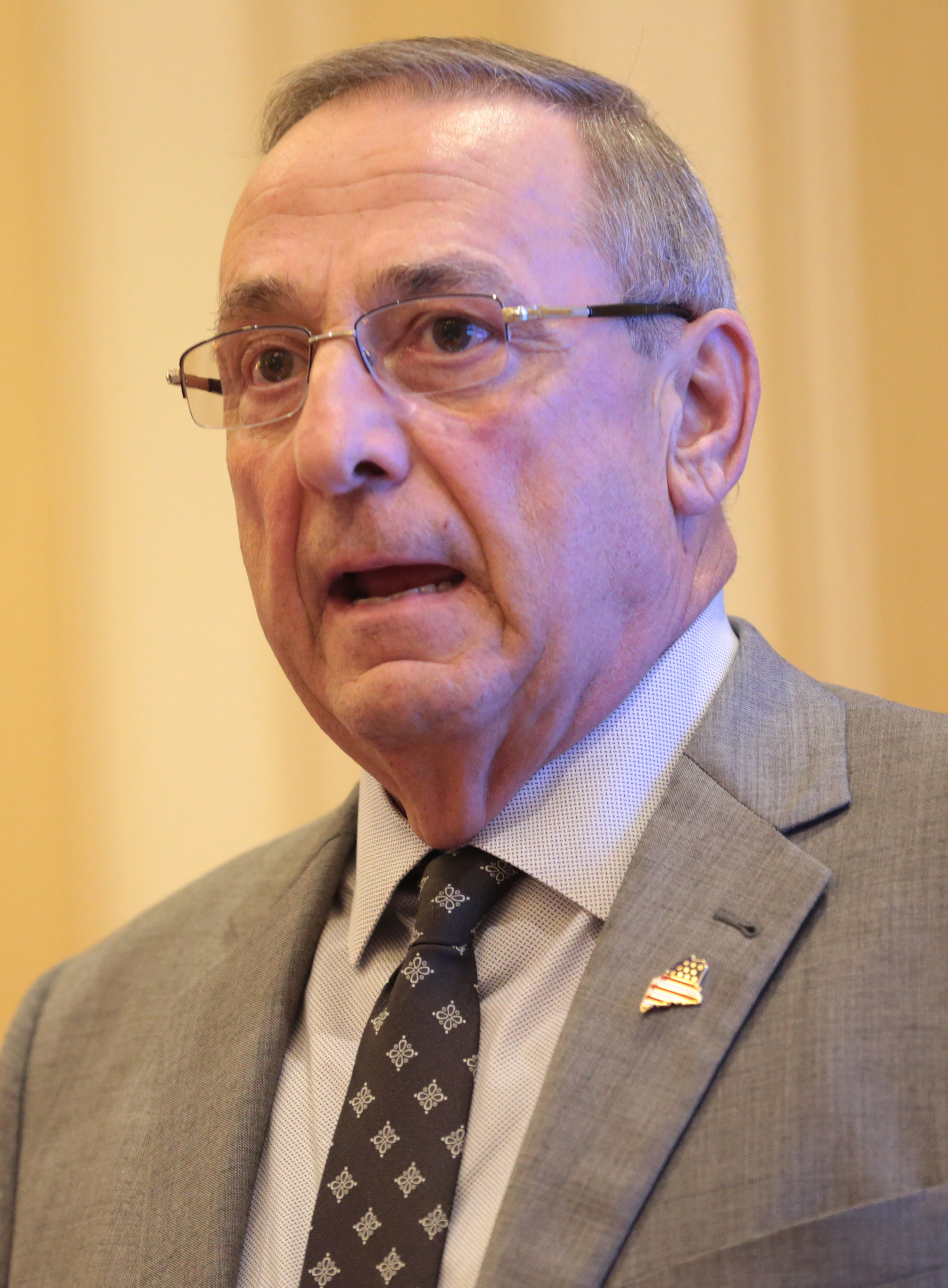On This Page
Paul LePage for governor
Paul was born and raised in Lewiston, Maine. The oldest son of eighteen children in an impoverished, dysfunctional family, Paul left home at the age of eleven to escape severe domestic violence.
He was homeless and living on the streets. He slept anywhere he could and earned as much as he could shining shoes and doing odd jobs. A Franco-American kid, a group then considered a minority in Maine and who had been aggressively targeted several years before in Maine by the Ku Klux Klan, life presented other problems. It was in a horse stable where he was sleeping that he met a stable hand who told him the phrase “if it is to be, it is up to me.”
This became Paul’s mantra he used to remind himself that if he worked hard, he could make it out of poverty.
Paul made it through high school and then applied to college. Getting accepted at Husson presented a new challenge. Paul LePage was brought up speaking French. For Paul, English is his second language. With the help of former U.S. Senator Olympia Snowe’s first husband Peter, who had learned of a young man in the community needing help, Paul was able to take an admissions exam in French to demonstrate his strong comprehension abilities and earn admittance.
While attending college at Husson, he supported himself as a short order cook and made time to achieve the role as editor of the college newspaper. Paul LePage excelled academically and graduated with a B.S. in Business Administration in Finance & Accounting.
Paul LePage then went on to earn an advanced college degree – an M.B.A., Masters in Business, from the University of Maine. Records indicate Paul is only the second Maine Governor to hold a Master’s Degree, the first being Joshua Chamberlain.
A Job Creating Leader in Maine
After college Paul did what he knew best: he went to work.
Paul worked for Chrysler and then in leadership for lumber and paper mills. He achieved success and became known as a sharp turnaround advisor who helped keep Maine companies in business and people employed.
One such company was the internationally known drumstick company Vic Firth, the choice for the world’s greatest drummers. In a Portland Press Herald article Vic Firth himself expressed “that LePage arrived during ‘turbulent times’ for the factory. LePage got the business back on track.”
As an outside advisor to companies with a private consultancy he provided executive officer, chief operating officer and chief financial officer services and advice to banks, law firms, client companies, insurance companies, bankruptcy courts and trustees. His industry experience includes manufacturing, wood products, forestry, power, furniture, food, and beverage, building supply and construction.
However, Paul is most well known as the General Manager of Marden’s where he helped build the internal infrastructure necessary to grow from a handful of stores to locations throughout Maine, stores that became a favorite of bargain hunters and shopping adventurists alike. In doing so, he proved hundreds of jobs could be created in Maine, even in the middle of a recession.
Giving Back as Mayor of Waterville
Next to escaping a life of poverty in Lewiston, one of Paul’s greatest success stories was as Mayor of Waterville. As a Republican elected and re-elected in an overwhelmingly Democratic town, he worked across party lines to reduce taxes repeatedly, improve the City’s credit rating, increase the rainy day savings fund, and maintain strong support for local education – all without cutting services.
An attention to detail, focus on the big picture, and a zeal for true efficiency are the attributes Paul brought from business to the public sector not only at the Mayoral levels but later for the entire state of Maine.
Elected and Re-Elected as Governor of Maine
A business leader who served his community, Paul LePage decided to run for Governor knowing some of the approaches that had succeeded throughout his business career and in Waterville could work for all of Maine.
He entered a seven-way primary contest for the Republican Nomination for Governor with very little name recognition. Event by event, Governor LePage won over converts with his message of personal success and his fiscally conservative principles. Despite being outspent ten-to-one by his nearest primary opponent, the Governor went on to a resounding victory in the seven-person primary.
During the five-way General Election, Governor LePage continued to talk about his experience in creating jobs and his commitment to putting people before politics in Maine. Governor LePage rode that truthful message to victory on November 2, 2010.
As Maine’s Governor he:
- dramatically lowered Maine’s unemployment rate
- ushered in budget reforms to reduce wasteful spending
- cut the pension debt by over 40% in just his first year in office
- created and implemented the largest tax cut in Maine history
- began welfare reform to not only protect the neediest but to ensure people found their way to economic freedom
- raised awareness about domestic violence
- authorized the second largest environmental fine in Maine history for an oil spill
- increased K-12 education spending while holding tuition stable in Maine’s higher education system
As Maine’s Governor he:
Maine had a brighter future because of Governor LePage’s work.
As Maine’s first lady Ann LePage became known throughout Maine as a champion of Veterans and their families. The LePage’s are also known for their fondness of animals, having dogs at the Blaine House and Ann helping author a children’s book about Baxter who lived at the Governor’s residence during the LePage’s term.
Move Maine Forward
With Maine emerging from a pandemic with an economy that cannot forever be held up with debt and deficit spending from Washington, Paul LePage knows Maine faces the need for yet another turnaround.
Unsustainable budgets and policies which favor special interests over the working people and job creators are leaving Maine on the doorstep to failure once again. Paul will not give up on a brighter, more successful future for Maine.
Providing economic and personal freedom is a key step in ensuring a more prosperous Maine for generations to come.


